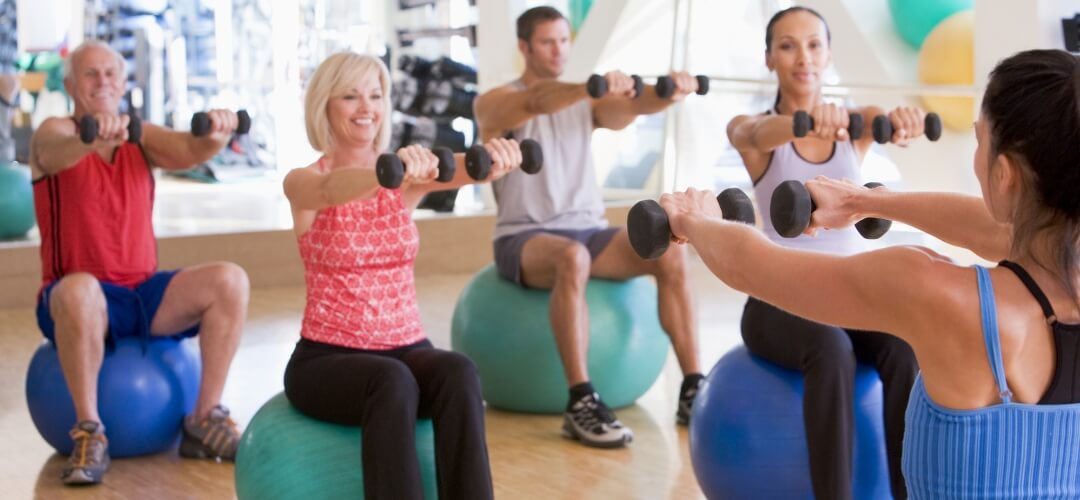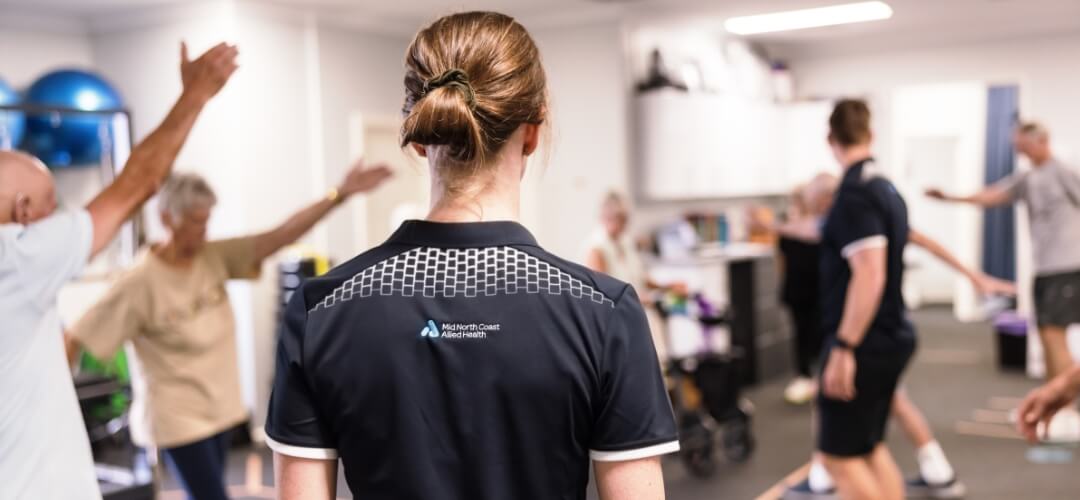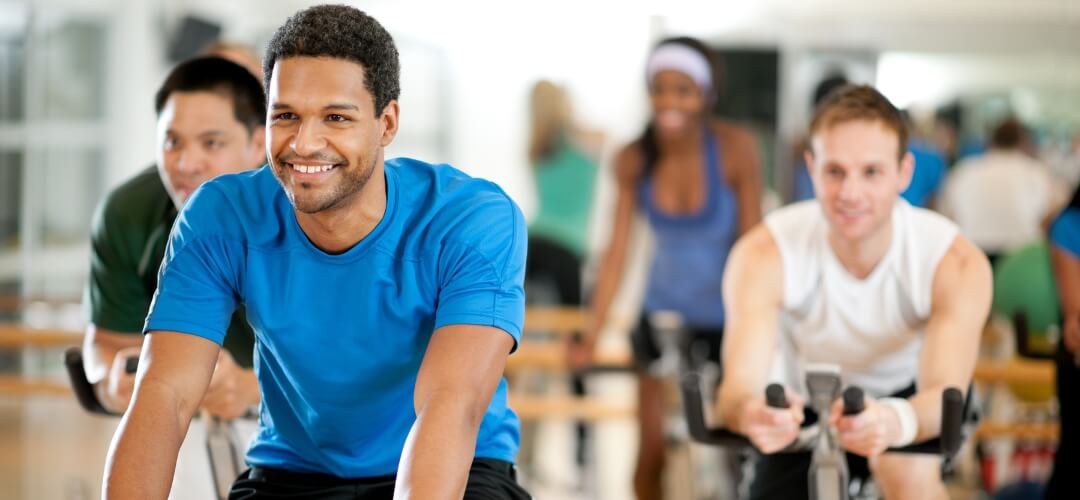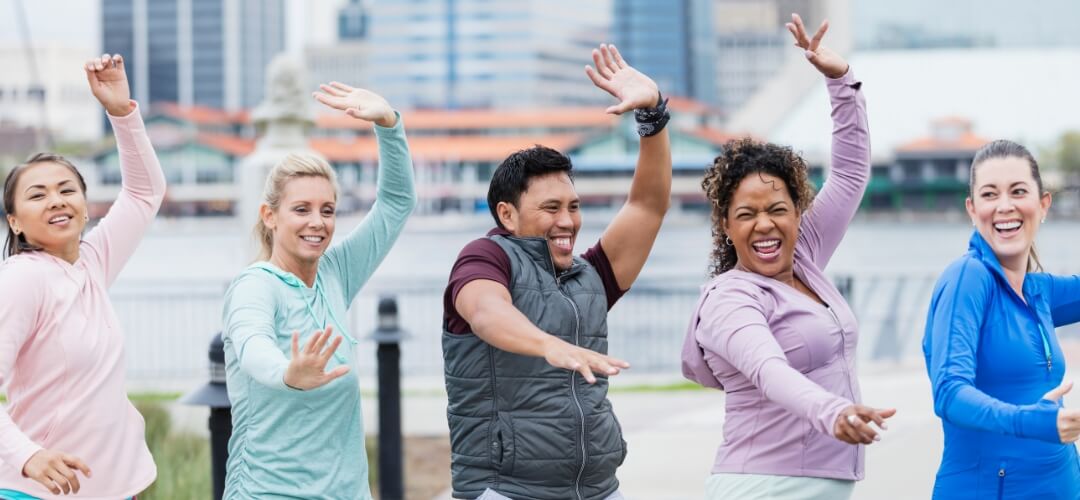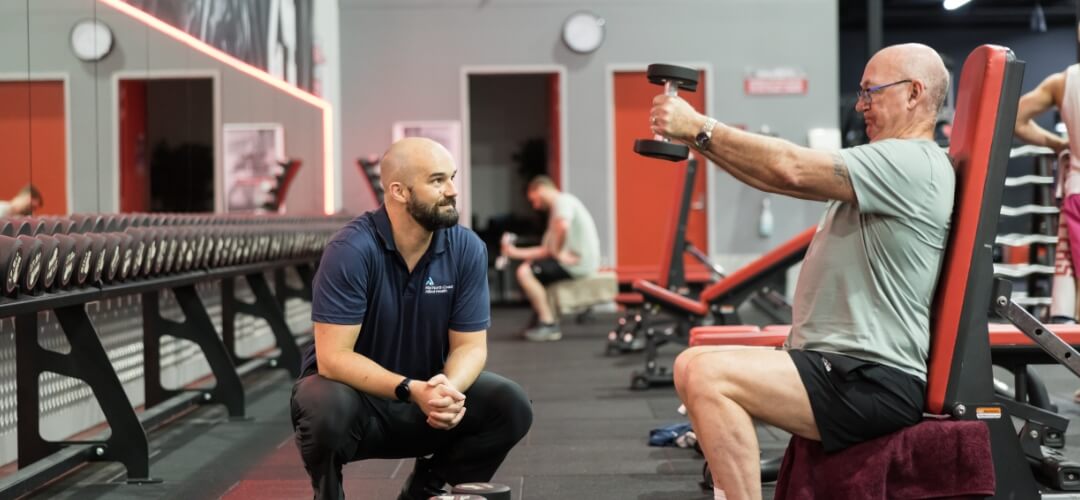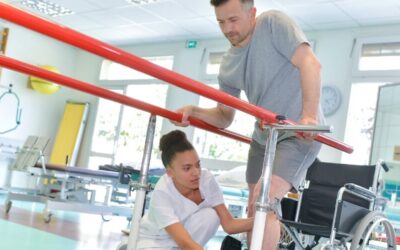Exercise classes not only provide a structured and guided approach to fitness but also offer numerous benefits that can positively impact your physical, psychological, and social well-being. In this article, we will explore the top five benefits of joining an exercise class and why it should be a part of your fitness routine.
Physical Benefits
Whether it’s through strength training, cardiovascular exercise, or even gentle stretching, exercise has the potential to transform our bodies, allowing us to move with ease and enjoy an overall improved quality of life. Here are just a few of the ways exercise can amp up the physical benefits of boosting your heart rate.
Improved Cardiovascular Health
Participating in regular exercise classes can significantly improve cardiovascular health. Activities such as aerobics, cycling, or dance-based classes help increase your heart rate, improving blood circulation and strengthening your heart. This can lower the risk of cardiovascular diseases such as heart attacks, strokes, and high blood pressure—all worthy reasons to lace up those trainers.
Enhanced Strength and Endurance
Exercise classes focus on building strength and endurance through various resistance and weight-bearing exercises. This helps with toning and strengthening your muscles, boosting metabolism, and improving overall physical performance. Regular participation can result in increased muscular endurance and functional strength.
Better Flexibility and Balance
Exercise classes often incorporate stretches and movements that improve flexibility and balance. As we age, maintaining flexibility becomes increasingly important in preventing injuries and maintaining mobility. Additionally, improved balance can help prevent falls, which are a common concern, especially for older adults.
Psychological Benefits
Exercise not only benefits our physical health but also has a profound impact on our mental well-being. Engaging in regular physical activity can boost our mood, reduce stress levels, and improve our overall mental state. It can enhance our cognitive function, sharpen our focus, and increase our energy levels.
Boosted Mental Well-being
Exercise has been proven to have a positive impact on mental health. Joining an exercise class provides an opportunity to engage in physical activity and release endorphins, the feel-good hormones. This can help alleviate the symptoms of depression, anxiety, and stress while promoting a sense of well-being and improved happiness.
Stress Reduction
Exercise classes serve as an excellent stress management tool. Engaging in physical activity helps reduce the levels of stress hormones in the body, relieving tension and promoting relaxation. Regular participation in exercise classes can provide a healthy outlet for the stress and pressures of daily life.
Increased Motivation
One of the significant benefits of joining an exercise class is the added motivation it provides. Being a part of a group setting and following a structured class schedule helps maintain consistency and accountability. The support and encouragement from fellow class members, along with the guidance of instructors, can boost motivation levels and keep you on track with your fitness goals.
Social Benefits
Exercise not only benefits our physical and mental health but also has a positive impact on our social well-being. Engaging in regular physical activity provides opportunities for social interaction and connection. Here are just a couple of ways exercise can boost your social life for the better.
Sense of Community
Exercise classes create a sense of community and belonging. Whether it’s a dance class, yoga session, or group fitness class, the shared experience of exercising together fosters a sense of camaraderie among participants. This social connection enhances motivation, accountability, and overall enjoyment of the exercise class.
Networking Opportunities
Exercise classes often attract individuals from various backgrounds and age groups. This presents an ideal opportunity to network and socialise with like-minded individuals with a common interest in fitness and wellness. These connections can lead to new friendships, support systems, and even potential professional relationships.
What does an Exercise Class look like?
Exercise classes can be diverse, catering to a range of interests and fitness levels. They may involve cardiovascular exercises like cycling, step aerobics, or dance-based workouts such as Zumba or hip-hop fitness.
Strength-based classes may include weightlifting, resistance training, or bodyweight exercises like Pilates or yoga. The key characteristic of an exercise class is that it is led by a qualified instructor who guides and motivates participants through the workout routines.
What is the most popular exercise class?
The popularity of exercise classes can vary depending on current trends and individual preferences. However, some consistently popular exercise classes all age groups enjoy include:
- Zumba: A fun and energetic dance-based workout that combines Latin and international music with high-energy moves.
- Yoga: A mind-body practice that combines physical postures, breathing techniques, and meditation for improved flexibility, strength, and relaxation.
- Spin: Indoor cycling classes that provide a challenging cardiovascular workout using stationary bikes.
- HIIT: High-intensity interval Training classes involve short bursts of intense exercises followed by brief recovery periods, an efficient way to improve cardiovascular fitness and burn calories.
- Pilates: Focusing on core strength and flexibility, Pilates classes use controlled movements to improve posture, balance, and overall body strength.
Who Should Join an Exercise Class?
Exercise classes are suitable for individuals of all fitness levels and ages. Whether you’re a beginner or an experienced fitness enthusiast, exercise classes can be modified to meet your specific needs and abilities.
The structured environment and guidance from the instructor ensure a safe and effective workout. Additionally, exercise classes are inclusive and often offer modifications for individuals with different health or mobility concerns.
Ultimately, joining an exercise class provides a multitude of benefits for your physical, psychological, and social well-being. Improved cardiovascular health, enhanced strength, and increased motivation are compelling reasons to make exercise classes a part of your fitness routine.
Enhance Your Exercise Goals
Have you considered supplementing your current routine with specialist exercise and physiotherapy? MNC Allied Health provides a wide range of exercise classes tailored to suit your unique needs, where you’ll experience a supportive and inclusive community.
We can help you achieve your goals with our individualised treatment and holistic approach, backed by the comprehensive knowledge and experience of our team of physiotherapists. Discover a healthier, happier you. Visit Mid North Coast Allied Health today and embark on an exciting journey towards a stronger, more resilient you!
How to Meal Prep Recipes for a Healthy Week
Embarking on a journey towards a healthier lifestyle can often feel like an uphill battle, fraught with time constraints and dietary dilemmas. However, with a bit of planning and creativity, meal prepping can transform this challenge into an achievable — and maybe...
How the NDIS Works – A Comprehensive Overview
The National Disability Insurance Scheme (NDIS) is a crucial part of Australia's social welfare system, offering a new way of providing individualised support to people with permanent and significant disabilities. Unlike traditional disability support systems, the...
Concussion Treatment: Tips for a Smooth Recovery
A concussion is a type of brain injury that can have serious physical, cognitive, and emotional implications—Especially if left untreated. Whether you're an athlete, office worker, or caregiver, it's important to understand the signs, symptoms, and recovery process...
